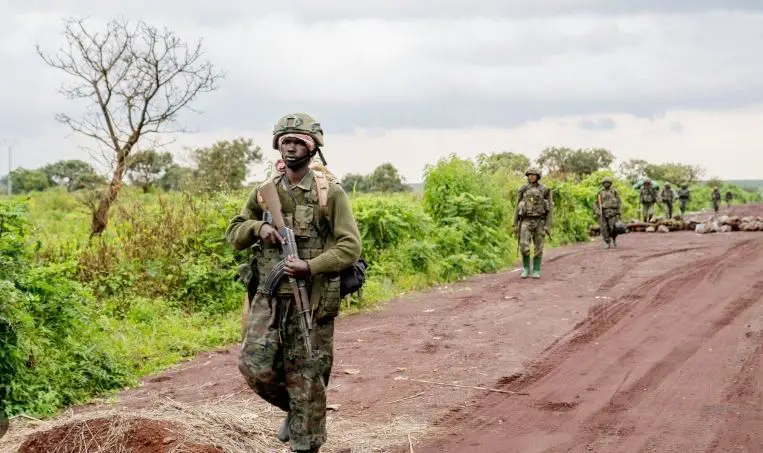Residents of Masisi and Rutshuru territories are fleeing from their homes as heavy gun fire rocks the area in a tense fight between the M23 rebels and DRC troops.
According to details emerging from the frontline, the violent clashes have been taking place since Tuesday morning in the corridor of Bishusha, Ngesha and Bishakishaki, localities straddling the territories of Masisi and Rutshuru.
The M23 rebels reinforced their positions in this area with the aim of cutting the Sake-Goma axis and reaching the mining entities of Rubaya.
According to the president of local civil society, detonations were expected in Kihanga, Ngola.
“We woke up to heavy bombardment by heavy weapons in Kihanga, Ngola, Bushakishaki. People here in Kicthanga have fled to seek shelter until the situation improves,” Tobi Kahangu said.
“The resistance fighters and FARDC created resistance and pushed the M23 back into Virunga Park,” he added.
The citizen movement Fight for Change (LUCHA) has criticized the Congolese leader in its bulletin called “Fatshimetrie”, a retrospective document which looks back on the 4 years of President Tshisekedi’s regime.
The bulletin in its security section LUCHA denounces the persistent insecurity , in North Kivu and in Ituri, in the restless east of the DRC.
LUCHA believes that the all-security strategy which resurrected the M23 has not succeeded . According to the group, the violence continues and no armed group has been neutralized.
“Like the state of siege, several security measures taken by President Tshisekedi have failed to restore and impose peace in the country. On the contrary, they have aggravated the security situation which is already fragile enough and could constitute a real obstacle to pacification efforts in the future. Tshisekedi’s security governance has reinforced the security chaos in eastern Congo,” Fatshimetrie reads in part.
Clearly, for LUCHA, after nearly 2 years since the establishment of the state of siege, its bitter failure is less in doubt, including those who established it.
“Without being exhaustive, it can be seen during the state of siege, the continued killing of civilians in the provinces of North Kivu and Ituri. The loss of human life following the atrocities of armed groups in North Kivu and Ituri estimated at 4220 dead according to the security barometer of Kivu. This represents more than double the number of victims of insecurity in these two provinces over the period before the introduction of this measure.




















